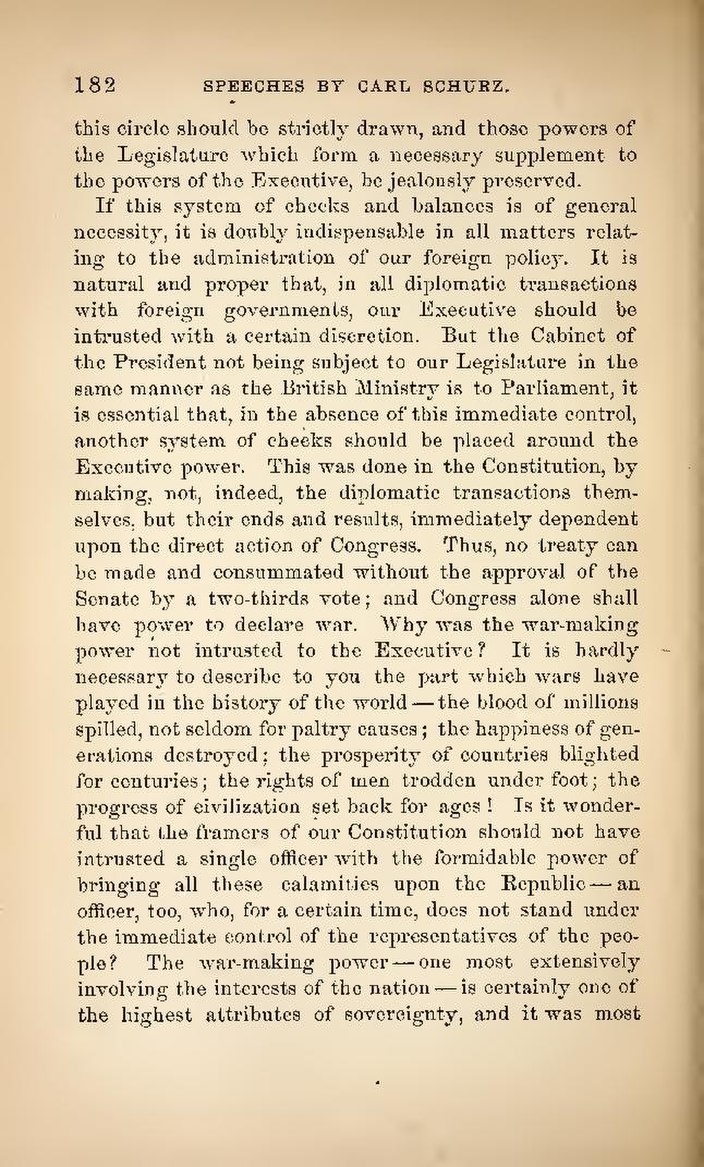this circle should be strictly drawn, and those powers of the Legislature which form a necessary supplement to the powers of the Executive, be jealously preserved.
If this system of checks and balances is of general necessity, it is doubly indispensable in all matters relating to the administration of our foreign policy. It is natural and proper that, in all diplomatic transactions with foreign governments, our Executive should be intrusted with a certain discretion. But the Cabinet of the President not being subject to our Legislature in the same manner as the British Ministry is to Parliament, it is essential that, in the absence of this immediate control, another system of checks should be placed around the Executive power. This was done in the Constitution, by making, not, indeed, the diplomatic transactions themselves, but their ends and results, immediately dependent upon the direct action of Congress. Thus, no treaty can be made and consummated without the approval of the Senate by a two-thirds vote; and Congress alone shall have power to declare war. Why was the war-making power not intrusted to the Executive? It is hardly necessary to describe to you the part which wars have played in the history of the world—the blood of millions spilled, not seldom for paltry causes; the happiness of generations destroyed; the prosperity of countries blighted for centuries; the rights of men trodden under foot; the progress of civilization set back for ages! Is it wonderful that the framers of our Constitution should not have intrusted a single officer with the formidable power of bringing all these calamities upon the Republic—an officer, too, who, for a certain time, does not stand under the immediate control of the representatives of the people? The war-making power—one most extensively involving the interests of the nation—is certainly one of the highest attributes of sovereignty, and it was most
